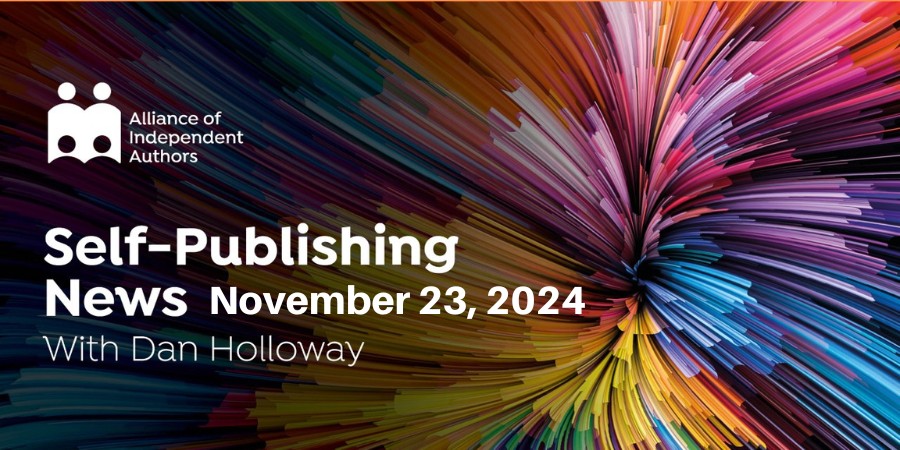Our end-of-week roundup feels dominated by the theme of expansion, with one story standing out in particular: the debate surrounding the HarperCollins AI licensing deal. Alongside this, Barnes & Noble’s surprising growth and Bluesky’s rapid user base expansion highlight significant shifts across industries.

ALLi News Editor, Dan Holloway
The first story to catch my eye had me reaching for paper towels to mop up the coffee I spat at my computer screen. When it comes to expansions, none has felt quite so improbable at quite so many points over the past decade as Barnes & Noble. And yet it seems the bricks-and-mortar bookstore giant is growing. By the end of 2024, it is now scheduled to have opened or reopened sixty stores. That’s quite an achievement. The piece I caught on CNN is quick to single out controversial chief James Daunt for bringing focus back to the store’s business model. It also points out the role of BookTok in driving people to stores.
The Rise of #BookSky
Talking of BookTok, the latest hashtag I know many writers are discovering is #BookSky. This week, I became one of the growing wave of people to move over and join X alternative Bluesky (find me at https://rogueinterrobang.bsky.social/). This week, the rapidly expanding social media platform hit the 20 million user mark and shows no sign of slowing down. Read more from the BBC.
Google Under Pressure
But expansion can go too far, as Google is learning to its cost. This week, the Department of Justice filed to require the tech giant to sell off its Chrome web browser. This is part of a move to curb its stranglehold on search. Google currently handles more than 90 percent of the internet’s search traffic, and Chrome accounts for almost two-thirds (64 percent) of web usage. Unsurprisingly, Google is not happy.
AI Rights Deals: A Heated Debate
The last of our mini stories doesn’t quite fit the “expansion” theme, but it sheds light on a question many of us have been speculating about: How much would large tech companies pay for the rights to your book? This ties in nicely with the Draft2Digital survey on writers’ attitudes toward such deals. This week, we got our first concrete answer: HarperCollins has been offering $2,500 for the rights to nonfiction books on its roster, with an additional $2,500 going to the publisher.
Authors learned of this when they received an email from HarperCollins asking for their approval, though no details were provided about the company involved.
This confirmed two points from the D2D survey. First, the figure is roughly what everyone expected to see. Second, authors are not happy about it. The latter was illustrated with the usual level of terse acerbity from John Scalzi in a post I encourage you to click through to read rather than quoting here to save all our blushes.
The Authors Guild has a post with key details of the deal. Unlike Scalzi, their approach seems broadly positive, emphasizing the guardrails and time-limited nature of the agreement, as well as the fact that payment is direct and immediate. One such guardrail is that AI companies involved will not scrape piracy sites. The Guild’s rationale for signing up appears to support the idea that licensing like this is a key way to prevent AI firms from using content illegitimately. Interesting times.
Thoughts or further questions on this post or any self-publishing issue?
 If you’re an ALLi member, head over to the SelfPubConnect forum for support from our experienced community of indie authors, advisors, and our own ALLi team. Simply create an account (if you haven’t already) to request to join the forum and get going.
If you’re an ALLi member, head over to the SelfPubConnect forum for support from our experienced community of indie authors, advisors, and our own ALLi team. Simply create an account (if you haven’t already) to request to join the forum and get going.
Non-members looking for more information can search our extensive archive of blog posts and podcast episodes packed with tips and advice at ALLi's Self-Publishing Advice Center.





I believe BlueSky will eventually fall down similar to threads, very much an echo chamber and more of a reaction to the dislike of what X has evolved into.